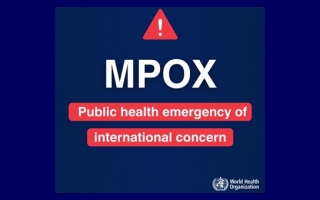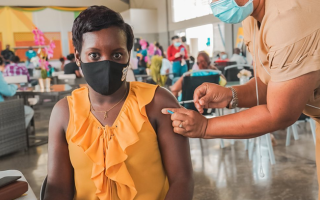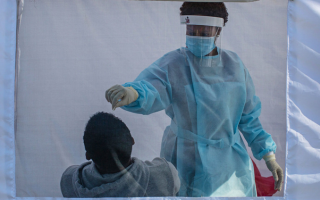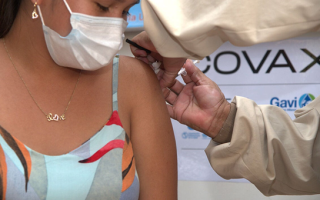UN leads bid for cheaper insulin, expanding access for diabetics worldwide
Article By: Old Harbour News
-

- Nov 13, 2019 05:14 PM | Health, International
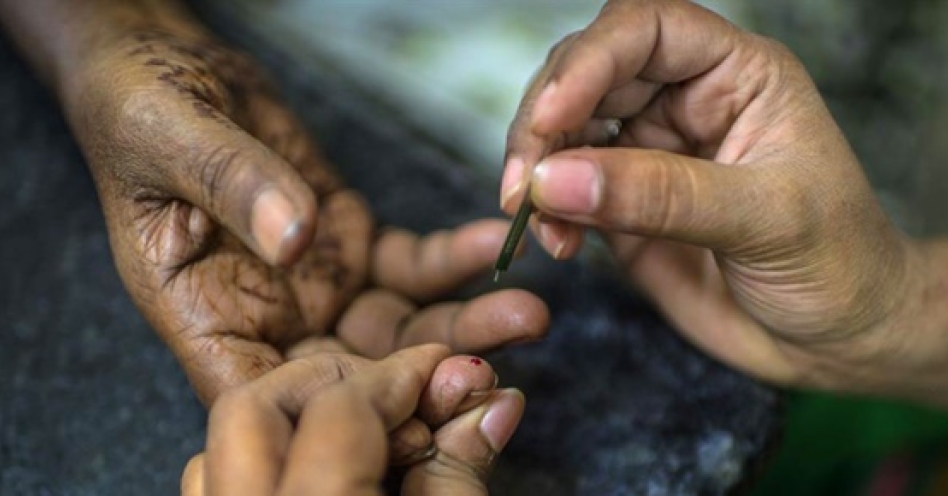
A health worker checks a diabetic patient's blood sugar levels. (Image Credit: WHO)
Announcing the initiative in Geneva, the UN agency said that it had already had informal expressions of interest from pharmaceutical companies looking to produce insulin and have WHO assess whether it is safe for people to use.
“The simple fact is, that the prevalence of diabetes is growing, the amount of insulin available to treat diabetes is too low, the prices are too high, so we need to do something,” said Emer Cooke, Director of Regulation of Medicines and other Health Technologies at WHO.
Coinciding with the project launch, which comes ahead of World Diabetes Day marked each 14 November, UN Secretary-General António Guterres highlighted the impact of “catastrophic” medical expenses on sufferers.
“Diabetes damages health and undermines educational and employment aspirations for many, affecting communities and forcing families into economic hardship”, he said, particularly in low and middle-income countries.
The WHO’s two-year pilot project, unveiled on Wednesday, involves the evaluation of insulin developed by manufacturers to ensure their quality, safety, efficacy and affordability.
Room for expansion of diabetic care
Assuming there is enough interest from manufacturers and, crucially, more insulin available for diabetics, the scheme could be expanded more widely.
“We’re going to look at the number of companies that will apply, we’re going to look at how long it takes, we’re going to look at the outcomes and we’re going to see whether this makes sense and it really is increasing access”, Ms. Cooke said.
The procedure is known as prequalification and WHO has done it in the past for non-brand vaccines, including those used to treat TB, malaria and HIV.
This had resulted in massive savings for sufferers around the world, with 80 per cent of HIV patients now relying on generic products, Ms. Cooke said.
She noted too that some companies had already committed to lowering prices.
Diabetics forced to ration insulin
In some countries, prices are so prohibitive that some people are forced to ration their insulin.
This leaves them susceptible to heart attacks, stroke, kidney failure, blindness and lower limb amputations.
And while diabetes was the seventh leading cause of death globally in 2016, the finding is only worrying because the disease kills people prematurely, said Dr Gojka Roglic, WHO medical officer and diabetes expert.
“We all have to die of something and why not of diabetes - but (only) after celebrating our 90th birthday,” she joked. “The problem with diabetes is that it accounts for a large proportion of premature diabetes – almost half of them occur before 70.”
In low and middle-income countries, the percentage rises to around 60 per cent, Dr Roglic added.
Data collected by WHO from 24 countries on four continents showed that human insulin was available only in 61 per cent of health facilities.
The data from 2016-2019 also showed that a month’s supply of insulin costs a worker in Accra, Ghana, more than a fifth of their take-home pay.















